Why SASE
SASE membership confers all of the advantages of access to a vibrant, diverse intellectual community. In addition to participating in an active network of scholars exploring issues in socio-economics from a variety of different angles, you will receive a subscription to our flagship journal, Socio-Economic Review. Membership is also required to attend our Annual Meeting.
Please have a quick read about the unique value of our Society from SASE Research Network leadership.
LEADERSHIP INSIGHTS
Matthew Allen
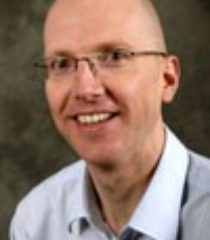
Network F: Knowledge, Technology, and Innovation
“SASE is a particularly valuable association to me, as it enables me to meet fellow academics from a wide range of disciplines within a constructive environment.”
Read bio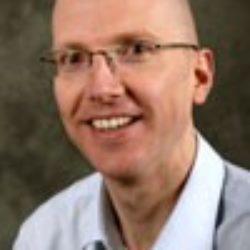
Matthew Allen is Professor of International Business at Manchester Metropolitan University Business School. His research compares and analyses business and employment systems and their effects on innovation, technology and work designs. His work has been published in leading comparative and international business journals, such as the British Journal of Management, Socio-Economic Review and the International Journal of Human Resource Management. He is on the editorial board of the International Journal of Human Resource Management. He has gained funding for his research from the German Academic Exchange Service, the Fritz Thyssen Foundation and the Engineering and Physical Sciences Research Council. In 2020, he gained funding from the Department for Business, Energy & Industrial Strategy for a prestigious Management Knowledge Transfer Partnership.
Before joining Manchester Metropolitan University Business School, he worked at Essex Business School and Alliance Manchester Business School, where he directed MSc programmes, including the FT-ranked MSc in Business Analysis and Strategic Management. He was the DBA Director between 2015 and 2019, successfully managing the programme and its partnership with the prestigious Shanghai Jiao Tong University, China. The joint DBA programme with SJTU was the only DBA programme approved by the Ministry of Education, China. During his Directorship, completion rates, publications from DBA research and the number of graduates going on to university careers increased.
Matt regularly attends, and presents papers at, the annual conferences of the Society for the Advancement of Socio-Economics and the Academy of International Business (UK and Ireland Chapter). He is one of the co-ordinators of Network F within SASE on Knowledge, Technology and Innovation. Between 2012 and 2015, he was the Communications Officer for the AIB (UK and Ireland Chapter). A paper he co-authored with Florian Becker-Ritterspach and Knut Lange was nominated for the Florida International University/Academy of International Business Best Theory Paper Award in 2020.
Diane-Gabrielle Tremblay
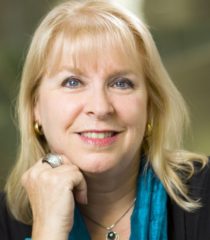
Network C: Gender, Work, and Family and Network L: The French Language Network
“What I appreciate in SASE,” says Diane-Gabrielle Tremblay, “is the diversity of issues that are discussed, and the interdisciplinary nature of the debates.” She has been an active member of SASE for over twenty years, participating in all aspects of the organization.
Read bio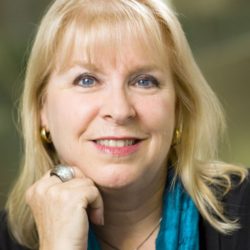
C: Gender, Work, and Family
Diane-Gabrielle Tremblay is Director of the Center on Work-Life Articulation over the Lifecourse, and professor of labor economics, innovation, and human resources at the Téluq Université of the University of Quebec in Montreal, Canada. She was also appointed Canada Research Chair on the Knowledge Economy (2002-2016). Her research interests include employment policies, clusters (multimedia, IT, and film sectors) working time and work-life balance, telework, Coworking, self-employment, work organization, teamwork, and communities of practice. Professor Tremblay has been an active member of SASE for over twenty years, participating in all aspects of the organization. In addition to her work as a network organizer, she has also been a member of the Executive Council and the Local Organizing Committee for Montreal in 1997. “What I appreciate in SASE,” says Tremblay, “is the diversity of issues that are discussed, and the interdisciplinary nature of the debates.”
Over the years, she has been an invited professor at Université de Paris I Sorbonne, Université de Lille I, Université d’Angers, Université de Toulouse, Université de Louvain-la-Neuve, HEC, Université de Liège in Belgium, the University of Social Sciences of Hanoi (Vietnam) and at the European School of Management.
Prof. Tremblay has published articles in many global peer-reviewed journals: Cities, Employee Responsibilities and Rights Journal, Personnel Review, New Technology, Work and Employment, Innovations,
Sabina Avdagic (deceased 2024)
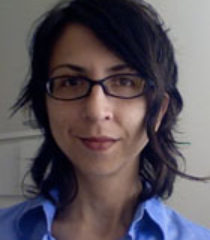
Network E: Industrial Relations and Political Economy
“I am enthusiastic about SASE because this is one of the rare academic associations that truly embraces interdisplinarity and methodological pluralism in the study of pertinent socio-economic problems facing contemporary societies,” says Sabina Avdagic, who has been actively involved in SASE activities since her graduate studies. In addition to her work as network organizer, she is also a member of the Executive Council and was Program Co-Chair of the 2007 conference in Copenhagen.
Read bio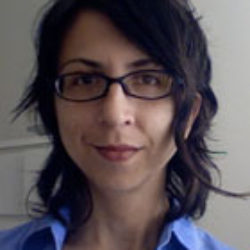
E: Industrial Relations and Political Economy
SASE mourns Sabina Avdagic’s sudden passing in January 2024. We send our profound condolences to her family and colleagues, and wish to express our gratitude for all that she brought to SASE in her many years with the organization. Sabina was actively involved in SASE activities since her graduate studies. In addition to her work as organizer of Network E, she was also a member of the Executive Council and was Program Co-Chair of the 2007 conference in Copenhagen.
Sabina Avdagic was a Reader in Political Economy at the Department of Politics at the University of Sussex. Her research interests included comparative labor relations and welfare states, theories of institutional change and economic adjustment, and causes and consequences of social concertation. Most recently, her research focused on the causes and effects of national variation in the strictness of employment protection in Europe, and on the role of the media in shaping attitudes towards the welfare state.
May her work continue to guide our reflections, and her life remind us how precious our time together is.
Diego Sánchez-Ancochea
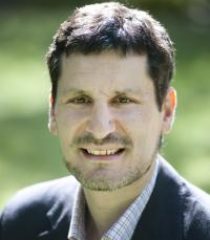
Network B: Globalization and Socio-Economic Development
“I joined SASE in Copenhagen several years ago but became more involved in Costa Rica in 2008, when Andrew Schrank and then President Michael Piore invited meto coordinate the development network. It has been an exciting opportunity, which has given me a chance to participate in interesting debates on the intersection between economics, politics and inequality.”
Read bio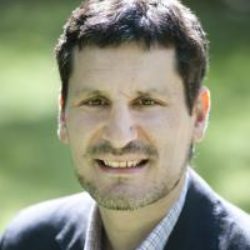
Diego Sánchez-Ancochea is a University Lecturer in the Political Economy of Latin America and a Fellow at St Antony’s College. His research concentrates on state-society relations, income distribution and industrial upgrading in small Latin American countries. He is currently working on a book that analyses the opportunities and constraints for the creation of a more equal development model in Central America in the current global era.
Alex Hicks
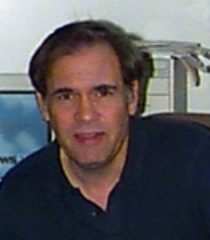
Network J: Rethinking the Welfare State
“For me as a U.S. social scientist, SASE opened an invaluable window onto the world of European social scientists working in the fields of economic sociology, political economy, the political sociology of economic and social policy; stratification and labor markets; development; organizations, institutional and heterodox economics; development theory; the communitarian and socioeconomic theories and analyses of Amitai Etzioni; and the current history and future prospects of the advanced welfare states. For scholars like me, interacting with these social scientists and others from across the world is most exciting, as have been all of SASE’s meeting places, fabled and newly discovered.”
Read bio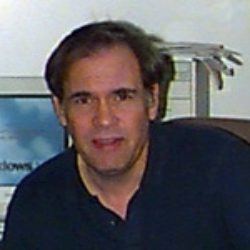
J: Rethinking the Welfare State
Alex Hicks writes regularly on theory and methodology in literature on advanced industrial welfare states and is currently investigating the partisan and interest politics of U.S. income inequality; and the impact of international financial institutions, economists, and INGOs on Latin American economic and social policy. He is author of Social Democracy and Welfare Capitalism (Winner of the 1998-99 best book award of the American Political Science Association),recent co-author (with Edwin Amenta) of Research Methods in the Study of Welfare States (Obinger, Pierson, Castles, and Leibfried, eds., Oxford Handbook of Comparative Welfare States), and recent co-editor (with Lane Kenworthy)of Method and Substance in Macro-Comparative Analysis: the Case of Employment Growth. He was inagugural co-editor (with David Marsden) of the Socioeconomic Review and is curently a fourth-time member of the editorial board of the American Sociological Review.) “For me as a U.S. social scientist,” he says, “SASE opened an invaluable window onto the world of European social scientists working in the fields of economic sociology, political economy, and the economy and instituions. Interacting with SASE members from across the world is most exciting, as have been all of SASE’s meeting places, fabled and newly discovered.”
Bernard Fusulier
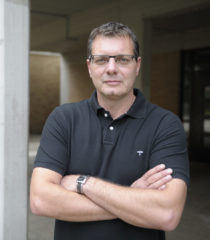
Network C: Gender, Work, and Family
“I remember my first SASE conference, in 2003, all too well: it was summer in Aix-en-Provence, and almost unbearably hot. The heat ended up bringing us together in a sort of sweaty solidarity, and I still remember our lively, constructive conversations. After that, I was hooked! I found SASE by chance, and had submitted a proposal to the “Gender, Work, and Family” network – which I now run with Diane-Gabrielle Tremblay. In SASE I found an intellectual space highly complementary to the other sociological meetings I normally attend. SASE provides an opportunity to meet colleagues from a wide variety of disciplines, and to learn more about current research in areas of interest to me. It seems to me that the lively interdisciplinary debate fostered at SASE is possible because of the epistemological pluralism that underpins the field of economic sociology, and because of the critical outlook that drives it. To my mind, a key advantage of this is a refusal to follow the principle of ceteris paribus, or at least to use it as little possible when grappling with the world in all its complexity, which goes hand in hand with a willingness to push past simplified assessments of human interaction (e.g. humans as merely rational or strategic actors), and to acknowledge institutional forces. And speaking of human complexity, this brings me to another of SASE’s assets: like all international organizations, SASE’s members communicate in different languages, and though SASE’s primary language is English, I appreciate its multi-lingual nature, and its openness to other major international languages, in particular through its Spanish and French research networks.”
Read bio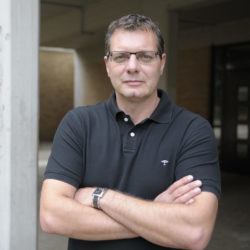
C: Gender, Work, and Family
Bernard Fusulier is a Research Director at the Belgian National Fund of Scientific Research and a Professor of Sociology at the University of Louvain, where he works at the Interdisciplinary Research Group on Socialisation, Education and Training (GIRSEF) and at the Interdisciplinary Research Center on Families and Sexualities (CIRFASE). His main research interests include the relationship between gender, work and family; life course; sociology of work; sociology of organisation; and theoretical sociology (social transaction approach in particular). Of his involvement in SASE, he says: “In SASE I found an intellectual space highly complementary to the other sociological meetings I normally attend. SASE provides an opportunity to meet colleagues from a wide variety of disciplines, and to learn more about current research in areas of interest to me.”
Gerhard Schnyder
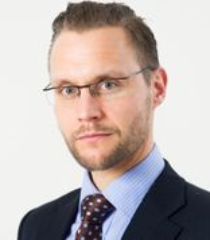
Network H: Markets, Firms and Institutions
“Since my first SASE meeting in 2003 I have attended as many annual meetings as I possibly could. I always found the interdisciplinary nature of the meetings extremely stimulating and indeed unique among the academic conferences I attend. Together with the Socio-Economic Review, SASE contributes greatly to keeping critical approaches to economic issues alive and to lend ‘heterodox’ scholars a voice.”
Read bio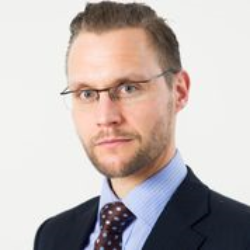
H: Markets, Firms, and Institutions
Gerhard Schnyder is a Reader (Associate Professor) in International Management at the Institute for International Management at Loughborough University London and research associate at the Centre for Business Research (CBR), University of Cambridge and at the London Centre for Corporate Governance and Ethics (LCCGE). Prior to joining Loughborough London, he worked at King’s College London, SOAS, University of London, and the University of Cambridge, UK. He holds a PhD in political science from the University of Lausanne, Switzerland (2008).
His current research focuses on comparative capitalism and comparative corporate governance. Gerhard is interested in the impact of institutional, political and historical factors on the organisation of national corporate governance and business systems. In particular, he investigates the interrelationship between legal and corporate changes and the role of agency in institutional change more broadly.
Richard Deeg
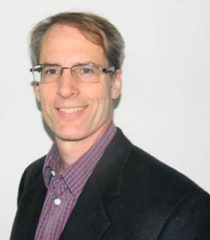
Local Organizer for SASE's 22nd Annual Meeting
“I am an enthusiastic supporter of SASE because it constitutes a unique, high-quality network that brings together scholars from various disciplines and a variety of nations with a common interest in political economy.”
Read bio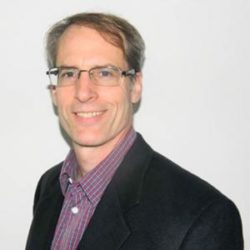
Professor Richard Deeg is the head of the Department of Political Science at Temple University. He received his PhD from the Massachusetts Institute of Technology. He has been a Postdoctoral Fellow and Visiting Scholar at the Max Planck Institute for the Study of Societies in Cologne, Germany, as well as the Social Science Research Centre, Berlin. He has received numerous awards and fellowships, including Fulbright and Jacob K. Javits Fellowships. His publications include Finance Capitalism Unveiled: Banks and the German Political Economy (University of Michigan, 1999) and numerous articles on German and European political economy in various journals. His current research focuses on causes and mechanisms of institutional change in financial systems. He was local organizer for the 2010 SASE Annual Meeting and has served on its executive council since 2010.
Matt Vidal
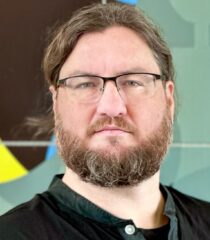
2010 Mini-Conference Co-Organizer: Organization Theory and Workplace Politics Under Globalization
“I have been attending SASE since since 2004, when I was still a graduate student. As an interdisciplinary space for heterodox economics, SASE remains a core intellectual community for me.”
Read bio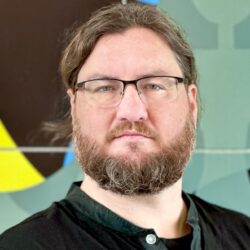
H: Markets, Firms and Institutions
Matt Vidal is Reader in Sociology and Political Economy in the Institute for International Management, Loughborough University London. He is author of Management Divided (OUP) and Organizing Prosperity (with David Kusnet; EPI) and editor of The Oxford Handbook of Karl Marx (with Paul Prew, Tomás Rotta and Tony Smith; OUP) and Comparative Political Economy of Work (with Marco Hauptmeier; Palgrave). Matt has published over 20 journal articles or book chapters, over 20 short academic articles, and over 45 popular opinion or new analysis pieces on work/human resource management/employment relations, labor markets, comparative political economy of growth/crisis/institutional change, and social theory.